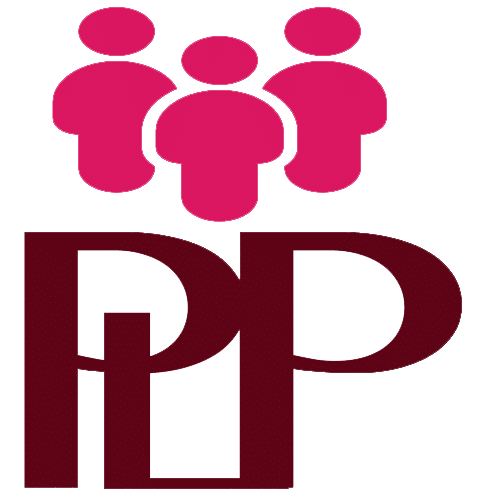A rushed hire, a misjudged fit, a role filled because the pressure to move quickly outweighed the time to get it right. Every employer has experienced this at least once. But the true cost of a bad hire goes far beyond the initial recruitment fee or onboarding expense.
It’s the disruption, the damage to morale, the loss of trust. And more often than not, the job still needs to be filled all over again.
In today’s competitive employment market, choosing the right candidate isn’t just important, it’s business-critical. And that all starts with having the right shortlist.
Why ‘Good Enough’ No Longer Is
Traditional, high-volume recruitment agencies are often incentivised by numbers, how many CVs they can send, how quickly they can fill the vacancy, how many placements they can complete in a month. But more CVs rarely mean better choices. In fact, CV overload is a growing complaint among HR managers and department heads.
“Too many agencies still focus on hitting activity numbers, rather than really solving the hiring problem,” says Andy Parke, Founder of Parke Lane People.
“We don’t believe in flooding inboxes. One strong, qualified candidate is worth more than 10 CVs that aren’t quite right.”
It’s not just frustrating, it’s expensive. According to the Chartered Institute of Personnel and Development (CIPD), the average cost of recruiting the wrong person in the UK is around £8,200, rising to £12,000 for senior managers, once you account for training, lost productivity, management time, and rehiring costs.
And for senior roles, the figures can be even higher.
The Ripple Effect of the Wrong Fit
When a hire doesn’t work out, the financial cost is just the beginning. The impact on teams, clients, and company culture can be harder to quantify, but just as serious.
Andrea Owen, Senior Consultant and Head Hunter, explains,
“A poor fit doesn’t just affect the person in the role, it drains the energy of the people around them.
It means wasted time for managers, tension in teams, and sometimes even the loss of good staff who become disillusioned.”
This is especially true in organisations where culture, service quality, or stakeholder relationships are core to success. That’s why a quality over quantity approach is not only safer, it’s smarter.

Why the Right Shortlist Makes All the Difference
At Parke Lane People, we don’t believe in long lists or speculative CVs. Every candidate we introduce has been fully interviewed, assessed and qualified, not just for skills, but for cultural fit, attitude, and long-term potential.
We don’t just ask whether they can do the job. We explore whether they’ll want to, in your environment, under your leadership, alongside your team.
“There’s no value in sending candidates who we wouldn’t hire ourselves,” says Andy.
“Our shortlists are carefully curated. They reflect your needs, your values, and your expectations, not our targets.”
This approach is what leads to higher retention rates for our clients. In fact, 92% of our placed candidates are still in post after 12 months, a figure that speaks directly to the quality of our process.
What Quality Really Looks Like in Practice
We’re not interested in how many placements we can push through in a quarter. Our success is measured by client satisfaction, candidate longevity, and the strength of the relationships we build.
Quality means,
- One point of contact throughout the process, not a different voice each week
- Real consultancy input, not just vacancy handling
- Honest conversations, not generic feedback
- And critically, shortlists that you can trust, not ones you have to second-guess
“If we present three people, there’s a strong chance you’ll want to meet all three,” Andrea notes.
“Clients come back to us because our shortlists save them time, reduce risk, and lead to better outcomes.”

Why This Matters More Than Ever
The current hiring landscape is unpredictable. Candidates have more options. Job loyalty is shifting. And yet, employers are under pressure to move quickly and fill gaps fast.
But moving quickly without precision leads to mistakes. And mistakes, particularly in small or mid-sized organisations, can set a business back months.
This is especially relevant in sectors like accountancy, legal, property, automotive, and education support services, where the stakes are high and talent is often in short supply.
“In many cases, we’re representing clients to candidates who weren’t even thinking about moving,” Andy adds.
“That kind of engagement only happens when the recruiter is trusted, credible, and focused on quality.”
Our Approach, Built for Better Retention
At Parke Lane People, our focus goes beyond simply making a placement. We take the time to understand your business, your people, and your long-term goals, so every step of the process supports a lasting, successful hire.
Every assignment includes:
- In-depth briefings, often on-site, to understand team dynamics
- Proactive engagement with both active and passive candidates
- Thorough screening to ensure alignment on both skills and culture
- Structured post-placement support at 1 week, 1 month, and 3 months to check in and offer continued guidance
This approach leads to stronger matches, greater confidence in the hiring process, and ultimately, better retention.
Final Thoughts
A poor hire costs more than just time and money. It affects morale, momentum, and the confidence of the teams involved. In a market where every headcount matters, it’s essential to take a considered, quality-first approach to recruitment.
At Parke Lane People, we work in partnership with our clients to help them make confident, long-term hiring decisions that support their business goals and culture. Whether you need additional reach, market insight, or support with a critical hire, we’re here to help you get it right, first time.
Let’s focus on what matters, quality over quantity, every time.
